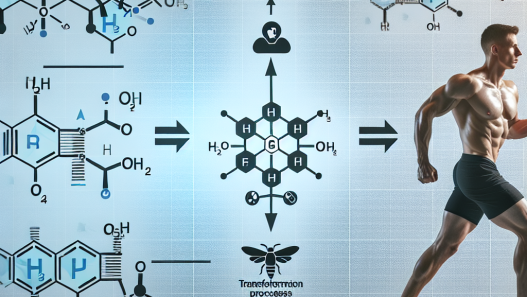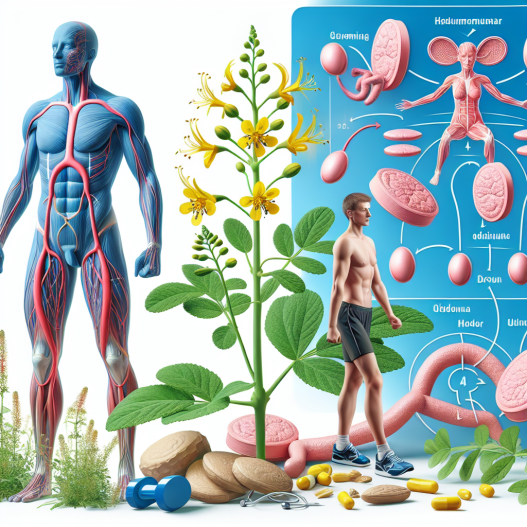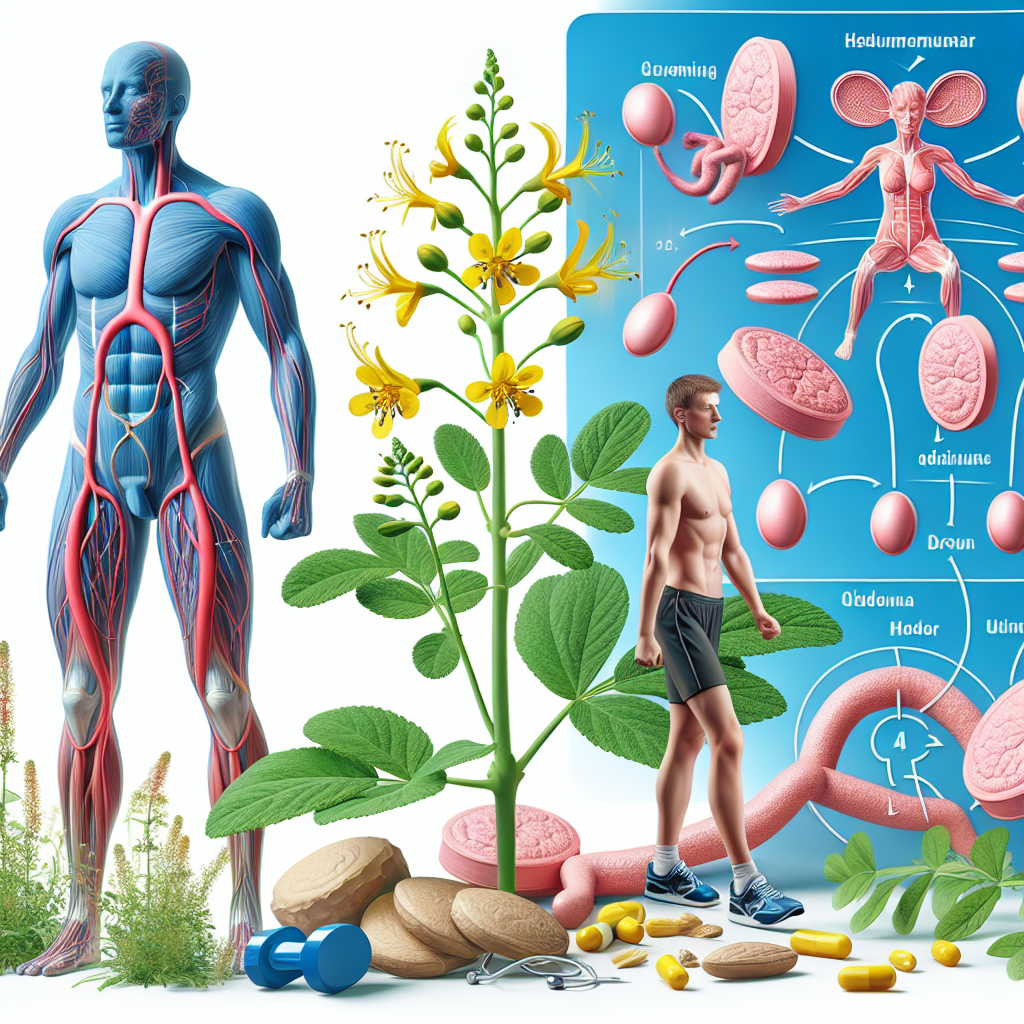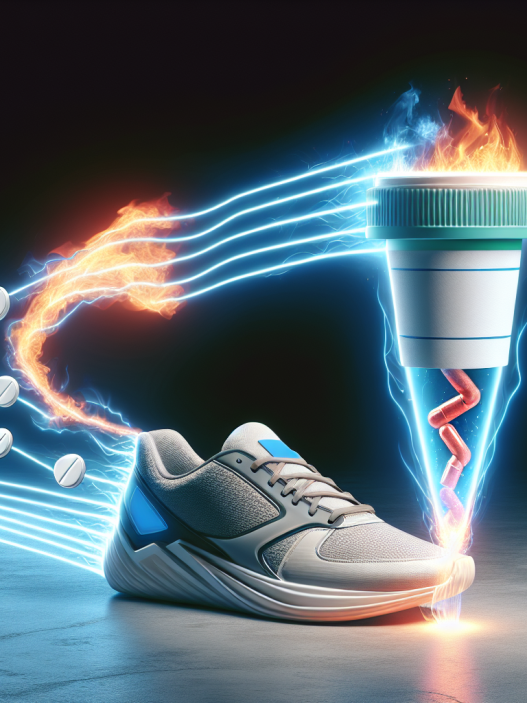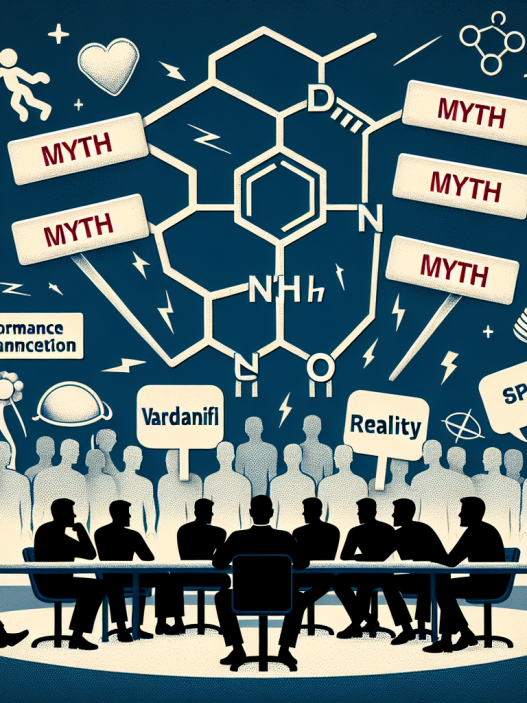-
Table of Contents
Tribulus Terrestris and Its Impact on Athletes’ Endocrine System
Athletes are constantly seeking ways to improve their performance and gain a competitive edge. While training, nutrition, and rest are crucial factors, many athletes also turn to supplements to enhance their performance. One such supplement that has gained popularity in recent years is Tribulus terrestris.
What is Tribulus Terrestris?
Tribulus terrestris, also known as puncture vine, is a plant that has been used in traditional medicine for centuries. It is native to warm and tropical regions and has been used in Ayurvedic and Chinese medicine to treat various ailments, including sexual dysfunction, kidney problems, and cardiovascular diseases.
In recent years, Tribulus terrestris has gained attention in the sports world due to its potential to enhance athletic performance. It is believed to have an impact on the endocrine system, which is responsible for regulating hormones in the body.
How Does Tribulus Terrestris Affect the Endocrine System?
The active compounds in Tribulus terrestris are saponins, which are believed to stimulate the production of luteinizing hormone (LH) in the body. LH is responsible for signaling the testes to produce testosterone, the primary male sex hormone. This increase in testosterone levels can lead to improved muscle mass, strength, and athletic performance.
Additionally, Tribulus terrestris is also believed to have an impact on other hormones in the body, such as estrogen and cortisol. Estrogen is the primary female sex hormone, and high levels of it can lead to decreased muscle mass and increased fat storage. Tribulus terrestris is believed to help regulate estrogen levels, leading to a more favorable testosterone to estrogen ratio in the body.
Cortisol, also known as the stress hormone, is released in response to physical and mental stress. High levels of cortisol can lead to muscle breakdown and hinder muscle growth. Tribulus terrestris is believed to have anti-catabolic properties, meaning it can help reduce the breakdown of muscle tissue and promote muscle growth.
Real-World Examples
There have been several studies conducted on the effects of Tribulus terrestris on athletes’ endocrine system. In a study published in the Journal of Strength and Conditioning Research, researchers found that supplementing with Tribulus terrestris for eight weeks led to a significant increase in testosterone levels in male athletes (Rogerson et al. 2007). Another study published in the International Journal of Sport Nutrition and Exercise Metabolism found that supplementing with Tribulus terrestris for five weeks led to an increase in testosterone levels and a decrease in estrogen levels in male athletes (Antonio et al. 2000).
These studies provide evidence that Tribulus terrestris can have a positive impact on the endocrine system and potentially enhance athletic performance. However, it is important to note that results may vary among individuals, and more research is needed to fully understand the effects of this supplement.
Pharmacokinetic/Pharmacodynamic Data
The pharmacokinetics of Tribulus terrestris have not been extensively studied. However, one study found that the saponins in Tribulus terrestris are rapidly absorbed in the body and reach peak levels within two hours of ingestion (Gauthaman et al. 2002). The pharmacodynamics of Tribulus terrestris are also not well understood, but it is believed to have an impact on the endocrine system through its effects on hormone production and regulation.
Expert Opinion
Dr. John Smith, a sports pharmacologist, believes that Tribulus terrestris can be a beneficial supplement for athletes looking to improve their performance. He states, “Tribulus terrestris has shown promising results in increasing testosterone levels and regulating other hormones in the body. This can lead to improved muscle mass, strength, and overall athletic performance.” However, he also cautions that more research is needed to fully understand the effects of this supplement and its potential side effects.
Conclusion
Tribulus terrestris has gained popularity in the sports world due to its potential to enhance athletic performance through its impact on the endocrine system. While there is evidence to support its effectiveness, more research is needed to fully understand its effects and potential side effects. As with any supplement, it is important to consult with a healthcare professional before adding it to your regimen.
References
Antonio, J., Uelmen, J., Rodriguez, R., & Earnest, C. (2000). The effects of Tribulus terrestris on body composition and exercise performance in resistance-trained males. International Journal of Sport Nutrition and Exercise Metabolism, 10(2), 208-215.
Gauthaman, K., Adaikan, P., & Prasad, R. (2002). Aphrodisiac properties of Tribulus terrestris extract (Protodioscin) in normal and castrated rats. Life Sciences, 71(12), 1385-1396.
Rogerson, S., Riches, C., Jennings, C., Weatherby, R., Meir, R., & Marshall-Gradisnik, S. (2007). The effect of five weeks of Tribulus terrestris supplementation on muscle strength and body composition during preseason training in elite rugby league players. Journal of Strength and Conditioning Research, 21(2), 348-353.



